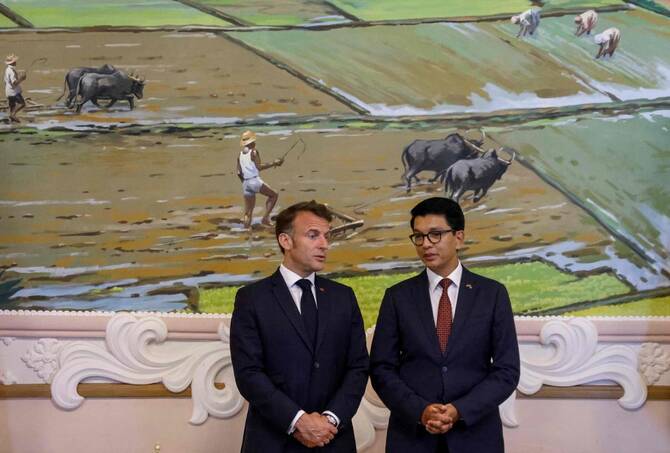
President Emmanuel Macron on Thursday expressed a desire for “forgiveness” during a solemn visit to Madagascar, acknowledging France’s colonial legacy on the Indian Ocean island.
Speaking at a remembrance ceremony in the former royal palace of Antananarivo, Macron admitted France’s historical presence was marked by “deeply painful pages” and vowed to confront that past with honesty.
“Our presence here is not innocent,” he declared, flanked by Princess Fenosoa Ralandison Ratsimamanga, emphasizing the need to “mourn what is no longer.”
Macron announced plans to return cultural artifacts taken during colonial rule, including the skull of a Malagasy king executed and decapitated by French forces in 1897.
“These human remains belong here and nowhere else,” he said, calling the repatriation a step toward healing and reconciliation.
Madagascar, the world’s fifth-largest island, endured French colonial rule from the late 1800s until achieving independence in 1960.
Today, despite abundant biodiversity and resources, the country remains burdened by poverty—an enduring scar of its colonial past.
Macron proposed the formation of a joint historical commission between French and Malagasy scholars, aiming to illuminate “truth, memory, history and reconciliation.”
This initiative mirrors efforts launched in other former French colonies, including Algeria, Cameroon, Senegal, and Haiti, where historical reckoning has become a cornerstone of Macron’s foreign policy.
By returning looted artifacts and confronting uncomfortable truths, Macron hopes to foster a renewed relationship grounded in mutual respect and remembrance.
